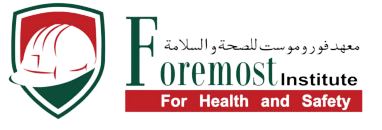
Why First Aid Training is Essential for Sports Coaches
The Immediate Benefits of First Aid Knowledge
By gaining first aid skills, you will not only boost your confidence but also become a dependable safeguard for your athletes. Specifically, you will learn how to:
- Assess injuries quickly and accurately
- Administer life-saving care when necessary
- Make timely decisions about continuing play
- Stabilize injuries until emergency services arrive
Consequently, you transform into more than a coach—you become a trusted first responder.
First aid training equips sports coaches with life-saving skills essential for athlete safety.
- Recognize signs of medical emergencies
- Perform basic life support techniques
- Apply proper wound care methods
- Execute correct splinting procedures
- Identify concussion symptoms
Sudden cardiac arrest poses a significant risk in sports, with young athletes particularly vulnerable.
- Deliver chest compressions effectively
- Use automated external defibrillators confidently
- Maintain proper rescue breathing techniques
- Follow the chain of survival protocol
- Maximize survival chances through quick response
Basic wound care and injury management skills allow coaches to:
- Clean and dress wounds properly
- Apply appropriate pressure to control bleeding
- Implement RICE protocol (Rest, Ice, Compression, Elevation)
- Stabilize sprains and fractures through correct splinting
- Assess severity of injuries accurately
Concussion recognition remains critical in contact sports. Trained coaches can
- Spot early warning signs
- Remove athletes from play immediately
- Conduct initial assessments
- Document symptoms accurately
- Guide return-to-play decisions
These skills transform coaches into capable first responders, ready to handle emergencies until medical professionals arrive. Regular training updates ensure coaches maintain current knowledge of best practices in sports emergency care.
Bridging the Gap to Professional Medical Care as a Sports Coach
As a coach trained in first aid, your role becomes crucial during those critical moments between an injury occurring and professional medical help arriving. When paramedics get to your sports facility, they need accurate and detailed information about what happened.
A coach trained in first aid can provide:
- Precise injury timeline – exact time and mechanism of injury
- Vital signs monitoring – changes in consciousness, breathing patterns
- Medical history details – athlete’s pre-existing conditions, medications
- Initial treatment applied – actions taken to stabilize the athlete
- Observed symptoms – pain levels, visible swelling, range of motion
This information helps paramedics make quick and informed decisions about how to treat the athlete and where to transport them. Your ability to communicate these details effectively can have a significant impact on the quality of care your athlete receives.
Why Coach Should Get First Aid Certificate
Being a sports coach is more than just teaching skills and strategies – it comes with serious ethical responsibilities. As a coach, you have a duty to look after your athletes’ well-being and safety.
Why First Aid Certification Matters for Coaches
Getting certified in first aid is an essential part of being a responsible sports coach. Here’s why:
- Protecting Athletes: You have a legal obligation to prevent harm to your athletes. By being trained in first aid, you can respond quickly and effectively to any injuries or medical emergencies that may occur during training or competitions.
- Building Trust: Athletes need to trust their coaches completely in order to perform at their best. When you show that you’re knowledgeable about first aid and prepared for any situation, you reinforce that trust and create a safe environment for your athletes.
- Avoiding Legal Issues: Negligence in emergency situations can lead to serious legal consequences. By staying up-to-date with first aid practices and having the necessary certifications, you protect yourself from potential lawsuits and demonstrate your commitment to athlete safety.
- Prioritizing Athlete Welfare: Ultimately, your main goal as a coach should be the well-being of your athletes. By investing time and effort into obtaining first aid certification, you send a clear message that their health and safety are always your top priorities
The Importance of First Aid Training in Sports Coaching
Professional sports organizations understand the significance of this ethical responsibility, which is why they often require coaches to have first aid training as part of their qualifications. For instance, the American College of Sports Medicine emphasizes that coaches must possess the knowledge and skills necessary to handle medical emergencies. This requirement goes beyond simply following rules – it speaks to the deeper trust between coach and athlete.
By becoming certified in first aid, you not only fulfill these professional standards but also demonstrate your unwavering dedication to ethical coaching practices as outlined in the Shape America coaching standards. Your commitment to athlete safety should never be taken lightly; it sets an example for others in the industry while ensuring that those under your guidance receive the care they deserve.
Benefits Beyond Compliance: Why Every Sports Coach Should Pursue First Aid Training
First aid training transforms sports coaches into confident, capable leaders who can handle emergencies with composure. While certification meets organizational requirements, the real value lies in the profound impact on both coaches and athletes.
Key Benefits of First Aid Mastery:
- Enhanced Decision-Making Skills: Quick assessment of injury severity, clear judgment under pressure, and confident action in critical moments.
- Psychological Preparedness: Reduced panic response during emergencies, improved stress management, and better emotional support for injured athletes.
- Team Trust Building: Athletes feel safer under trained supervision, parents gain confidence in coaching staff, and stronger coach-athlete relationships.
Your ability to remain calm during emergencies creates a ripple effect. When you handle injuries with composure, athletes stay calmer, bystanders maintain order, and medical professionals can work more effectively upon arrival.
First aid training equips you with practical skills that extend beyond the playing field. You’ll develop heightened awareness of potential risks, sharper observation skills, and the ability to anticipate and prevent dangerous situations. These capabilities make you not just a better coach, but a more valuable member of your sports community.
